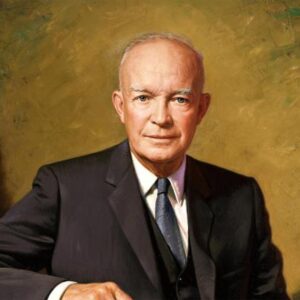There was a time when the presidency was viewed as a venerated and exalted office with the President of the United States seen as the nation’s father figure, whose intellect, judgment, and sage analysis of the nation’s problems were respected by all, no matter what your party. After an election, vanquished opponents would cease slinging their campaign arrows and urge the nation to support their new president, often even riding in the same car on Inauguration Day. Sadly, those days are no more. Thanks to Donald Trump, the presidency has been strip-mined and laid to waste as the political process has became cynically divisive and, in the case of Trump, self-serving.
The other thing that has changed since Trump’s presidency has been political theater. Such has been the pervasiveness of Trump’s ever-presence in politics that theater-goers attending politically or historically-oriented plays and musicals have been unable to view them without being filtered through the lens of what is happening in the real world, wryly recognizing ironies and inconsistencies in a production’s subject matter. A perfect example is the Rubicon Theatre Company’s current production of Eisenhower – This Piece of Ground, a one-man show that features an inspirational performance by John Rubinstein as the 34th president, Dwight D. Eisenhower. Once viewed as an ineffectual leader during the complacent 1950s, Eisenhower’s star has risen in recent years, sufficiently so that in a recent survey conducted by a panel of historians deemed experts in the American presidency, Eisenhower currently ranks as the eighth best president in history, considerably higher than the No. 22 slot, which is where Eisenhower finds himself at the outset of the play. It takes place in 1962, shortly after Eisenhower concluded his second term and retired to private life. The 71-year-old former president is in his study, looking back at his life while mulling over a request by his publisher that he pen his memoirs. Richard Hellesen’s play, which had its world premiere in 2022, is a rich and sometimes emotional portrait of a monumental figure in American history, despite cherry-picking from the better aspects of his presidency and ignoring some of the more controversial ones.
“Who the hell wants to relive my presidency?” Ike grumbles, as he fiddles with a tape recorder, preparing an aural letter to biographer Kevin McCann. After reading a newspaper article about the current presidential historical rankings and finding himself viewed as “mediocre and inept,” “a great American, but not a great president,” he angrily readdresses his verbal letter, directing it to the historians who wrote the article.

Although John Rubinstein delivers an astoundingly effective performance, his Eisenhower is actually closer to Harry Truman: crotchety, irascible, and plain spoken, with little of the jovial, ever-smiling image we are used to when recalling photographs of Eisenhower. In his musings, we are treated to a resumé of Eisenhower’s accomplishments as president: constructing the interstate highway system, maintaining a decade of peace, and helping to create NASA, thus instigating the space race. Eisenhower defends his middle-of-the-road politics by reasoning that “the middle is the usable part of the road,” if you go too far to the left or the right, you can fall off a cliff. To be an effective president, one must seek compromise through persuasion, yet emphasized traits like moral courage and integrity. The play’s title comes from Eisenhower’s belief that becoming president is like purchasing a plot of land: “Your job is to take a piece of ground and leave it better than you found it,” he says.
It is when Eisenhower brings up the subjects of General Douglas MacArthur and Senator Joseph R. McCarthy (R-Wis) that the audience begins to notice similarities with Trump: the egocentric MacArthur, who was fired for insubordination by Truman (“a damn fool who believed that the rules of war and government didn’t apply to him”), and the inveterate liar McCarthy, who destroyed countless lives through his droning political witch hunts for Communists in government (“a fascist in a rumpled suit”) and pitting Americans against one another. In many parts of Hellesen’s play, the audience could be clearly heard murmuring in recognition as Trumpian traits in MacArthur and McCarthy are referenced.
Despite the lofty image of Eisenhower depicted in the play, its subjectively selective history ignores more troubling elements of his life, including his illicit affair with Kay Summersby, his wartime mistress. Also absent were mentions of Eisenhower’s failures in foreign policy, such as his support of an Iranian coup-d’état that restored the rule of the Shah (Mohammad Reza Pahlavi), the introduction of “advisors” in Indochina, which led to the devastating Vietnam War in the 1960s, and the CIA’s overthrowing of the president of Guatemala, who was challenging the interests of the United Fruit Company. There is also the glaring omission of any mention of Richard Nixon, Eisenhower’s vice president, as well as the execution of Ethel and Julius Rosenberg, and the rise of Communism in Cuba. Eisenhower does take credit, however, for directing the 101st Airborn Division to intervene after Arkansas Governor Orval Faubus ordered the state’s National Guard to prevent nine Black students from integrating a Little Rock high school.
Despite the flaws and omissions of the subject matter, Rubinstein is masterful in portraying Eisenhower in all of his various moods: feistiness when talking of politics, sorrow when recalling the death of his first-born son Doud (nicknamed “Icky”) at the age of three from scarlet fever, and affection for his wife Mamie. A backdrop depicting the golf course at his Gettysburg, Pennsylvania home is overlaid with projections of himself in his formative years: as a young West Point cadet, as president of Columbia University, and as Supreme Commander of the Allied Expeditionary Force during World War II. Although the play, as are most that deal with historical matters, is selective in burnishing Eisenhower’s image, through Rubinstein’s memorable performance we are able to better understand the complex individual Dwight Eisenhower was, and to remember a time when presidents were intelligent, thoughtful, and accomplished Americans, to be admired and respected.
********************
Eisenhower: This Piece Of Ground plays through March 14 at the Rubicon Theatre Company in Ventura. For details, visit https://www.rubicontheatre.org/events/eisenhower/






No Comments